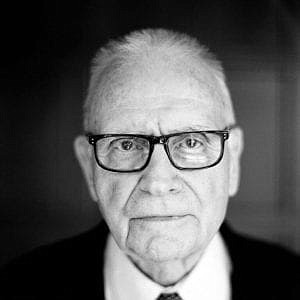February 28, 2024 at 7:00 a.m.
By Lee H. Hamilton
Big decisions have shaped the United States. We wouldn’t be who we are as a nation without the decisiveness shown by America’s founders and by our leaders in times of crisis. It’s an essential quality of successful countries: the ability to make big, consequential decisions.
We can start at the beginning, when the colonists made the enormous decision to break away from Britain and form an independent nation. Then, 85 years later, U.S. leaders decided it was essential to preserve the Union against secession by the Southern states.
Another big decision came in the 1930s and ’40s when President Franklin D. Roosevelt persuaded Americans to abandon isolationism and engage with the world. U.S. participation in World War II and our leadership in creating security and economic institutions shaped the post-war international order.
This isn’t an all-encompassing list of big decisions. There are many others we could mention. But these decisions stand out for their influence on American history.
The colonists’ decision to break with Britain wasn’t inevitable, nor was it easy. It meant defying the most powerful empire in the world, and it put the colonists at severe risk. Benjamin Franklin supposedly said, “We must all hang together or most assuredly we shall all hang separately.”
Inspired by Enlightenment principles and prodded by British oppression, the Continental Congress voted to declare independence and ratified the Declaration of Independence on July 4, 1776. Thomas Jefferson’s idealistic words — “We hold these truths to be self-evident, that all men are created equal, that they are endowed by their Creator with certain inalienable rights” — set a high bar.
The founding ideals were tested when divisions between North and South led to the Civil War. While Confederate leaders made it clear that protecting slavery was their primary objective, Abraham Lincoln framed the conflict as a battle to preserve the Union. Again, there was nothing preordained about this. There were strong forces pulling the country apart.
Lincoln, celebrated as the Great Emancipator, insisted his duty was to maintain the Union, not to end slavery. In 1862, he declared: “If I could save the union without freeing any slaves I would do it; and if I could save it by freeing all the slaves I would do it; and if I could save it by freeing some and leaving others alone, I would also do that.”
Preserving the Union was a big, costly decision. By the time the Civil War ended, 617,000 Americans had died. Lincoln issued the Emancipation Proclamation to free Southern slaves in 1863. And slavery was, in fact, abolished with the 13th Amendment.
More than 100,000 more Americans died in World War I. When Franklin Roosevelt took office in 1933, the country was exhausted by war and suspicious of foreign entanglements. Isolationism was at a high level. Roosevelt spoke forcefully about freedom and democracy, but his foreign policy was cautious, deferring to popular sentiment.
But when World War II broke out, the president pushed America to support our allies. Pulled into the conflict by Japan’s attack on Pearl Harbor, the U.S. played a leading role in fighting and, later, in creating the institutions that would rebuild Europe and Asia and restore peace and security. The postwar world order owes much to FDR’s decision to engage assertively with the world.
What big decisions does America face today? It’s an open question, but issues that called for tough decisions in the past are still with us. With the nation deeply divided, can we unite and preserve the Union? With many Americans increasingly skeptical of involvement in international conflicts, will we engage with the world or return to the “America First” attitudes of the 1930s?
Successful countries must make big decisions, even when they involve risk and controversy. Our well-being and that of the world depend on our ability to make these decisions when necessary.
** Lee Hamilton is a senior adviser for the Indiana University Center on Representative Government, a distinguished scholar at the IU Hamilton Lugar School of Global and International Studies and a professor of practice at the IU O’Neill School of Public and Environmental Affairs. He was a member of the U.S. House of Representatives for 34 years.

